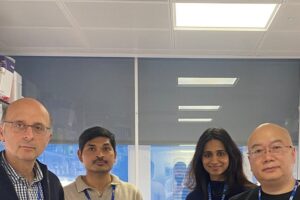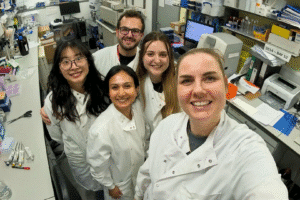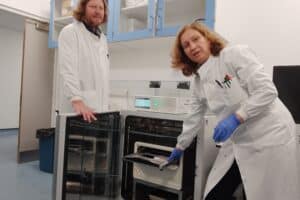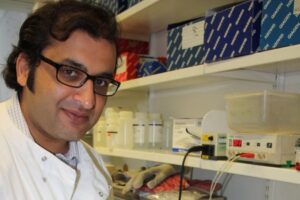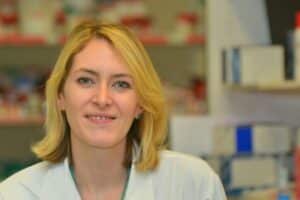Research
Refining our knowledge about the genetic causes of leukaemia
A large number of genetic mutations have been identified in childhood acute myeloid leukaemia (AML), with any one child having between 5-20 mutations. The role played by these mutations, alone and in combination, is not fully understood. This project will develop a model system that will facilitate the study of these mutations. Ultimately this will aid the development of more effective treatments.
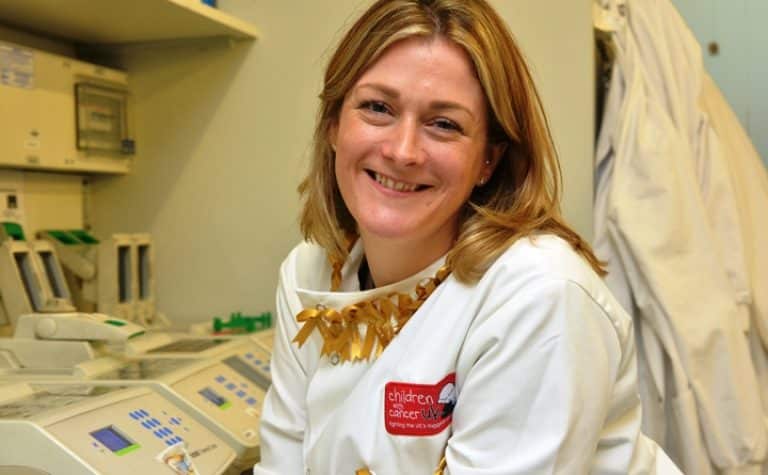
Project Details
- Developing zebrafish models of inherited AML to interrogate secondary driver events
- Lead Researcher
- Dr Elspeth Payne
- Research Centre
- UCL Cancer Institute
- City & Institution Postcode
- London, WC1E 6DD
- Start Date
- 12 October 2015
- Project Duration
- 2 years
- Grant Amount
- £52,500
Thank you
This research project on the genetic causes of leukaemia has been successfully completed. Your donations allow us to fund ground-breaking research that can improve treatments given to children with cancer. Thank you. Your help allows us to continue to find ways to drive up the chances of survival for children with cancer and reduce the toxic side effects that can affect the rest of their lives.
Overview
Acute myeloid leukaemia (AML) is the second most common form of childhood leukaemia. It has a substantially worse outlook than the more common form, acute lymphoblastic leukaemia (ALL). It is now well known that errors (mutations) in our blood stem cells lead to the development of AML. A large amount of research has been carried out to identify the mutations that result in leukaemia and more than 250 mutations have been identified. We know that a single mutation is not enough to cause leukaemia; each child with AML will have between 5-20 of these mutations. However it is thought that one mutation can act as a master ‘trigger’. This is termed the ‘driver’ mutation. In most cases we don’t really know the role played by other mutations that are present in leukaemia cells. The idea behind this project is that a ‘driver’ mutation needs a ‘secondary driver’ to convert a normal cell into a leukaemia cell and these “secondary drivers” are among the other mutations that we know are present. Although most childhood leukaemias are sporadic, there are familial syndromes where children can inherit a genetic mutation that leads to the development of AML. Although rare, these familial cases provide an important opportunity for the study of the genetics of AML because the “driver” mutation is already known. In this project, Dr Payne and colleagues aim to create a system where they can test the roles of possible secondary drivers to see which are the most important in the development of leukaemia. The model system uses a small freshwater fish called the zebrafish. Zebrafish develop leukaemia in the same way as humans and the genes that are responsible for programming blood development are the same. Zebrafish offer an excellent system in which to study blood and leukaemia because the young are completely transparent, enabling blood development to be seen in real time under a microscope.
What difference will this project make?
- Developments in gene sequencing technology have led to an explosion in knowledge about the genetic basis of cancer in recent years. Detailed studies have now identified that between 5-20 mutations are present in human AML. These mutations vary from case to case, with more than 250 mutations identified in total.Focusing on inherited predisposition to AML, Dr Payne and colleagues aim to discover how genetic mutations interact to cause leukaemia and what are the most important acquired mutations on top of the one they know has been inherited (the “driver”)
- By determining the most important genetic combinations, the team will build a clearer picture of the mechanisms underlying the development of childhood AML. The genes mutated in the inherited leukaemias are also mutated in a significant proportion of children with sporadic leukaemia, increasing the likelihood that the team’s findings will be applicable to many children with AML. In children, AML still carries a high mortality compared with the more common acute lymphoblastic leukaemia (ALL) where more than 90% of children are cured
- By giving us a greater understanding of the sequential steps required to develop leukaemia in children, we hope that this work will facilitate our ability to develop targeted treatments. It also offers the potential to develop tools that will enable the detection of second mutations at an early stage which may allow doctors to treat the condition earlier or with less toxic therapies.
About the Research Team
The Payne laboratory at the UCL Cancer Institute is dedicated to the study of inherited bone marrow failure disorders and leukaemias. They use zebrafish to model these diseases. Dr Payne trained in one of the world’s leading laboratories in zebrafish leukaemia models at Harvard University in Boston, USA. Dr Payne is also a clinical haematologist at University College London Hospital, where she treats patients with blood disorders including leukaemia and bone marrow failure. In addition to the world class expertise in zebrafish modelling of blood diseases, the Payne laboratory has a close collaboration with Professors Inderjeet Dokal and Jude Fitzgibbon at Barts Cancer Institute, world leaders in the field of familial leukaemias. They will provide detailed information about the genetics of the leukaemias that are being studied in this project.
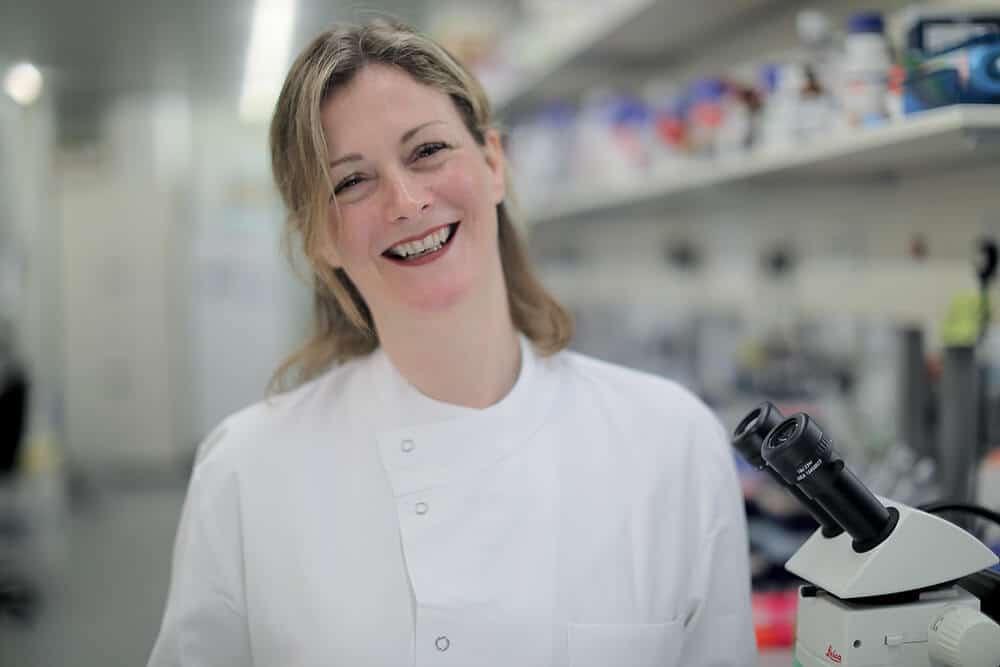
Other stories
We have lots of information to help you learn more about childhood cancer. From specific cancer types, to treatments and causes.
